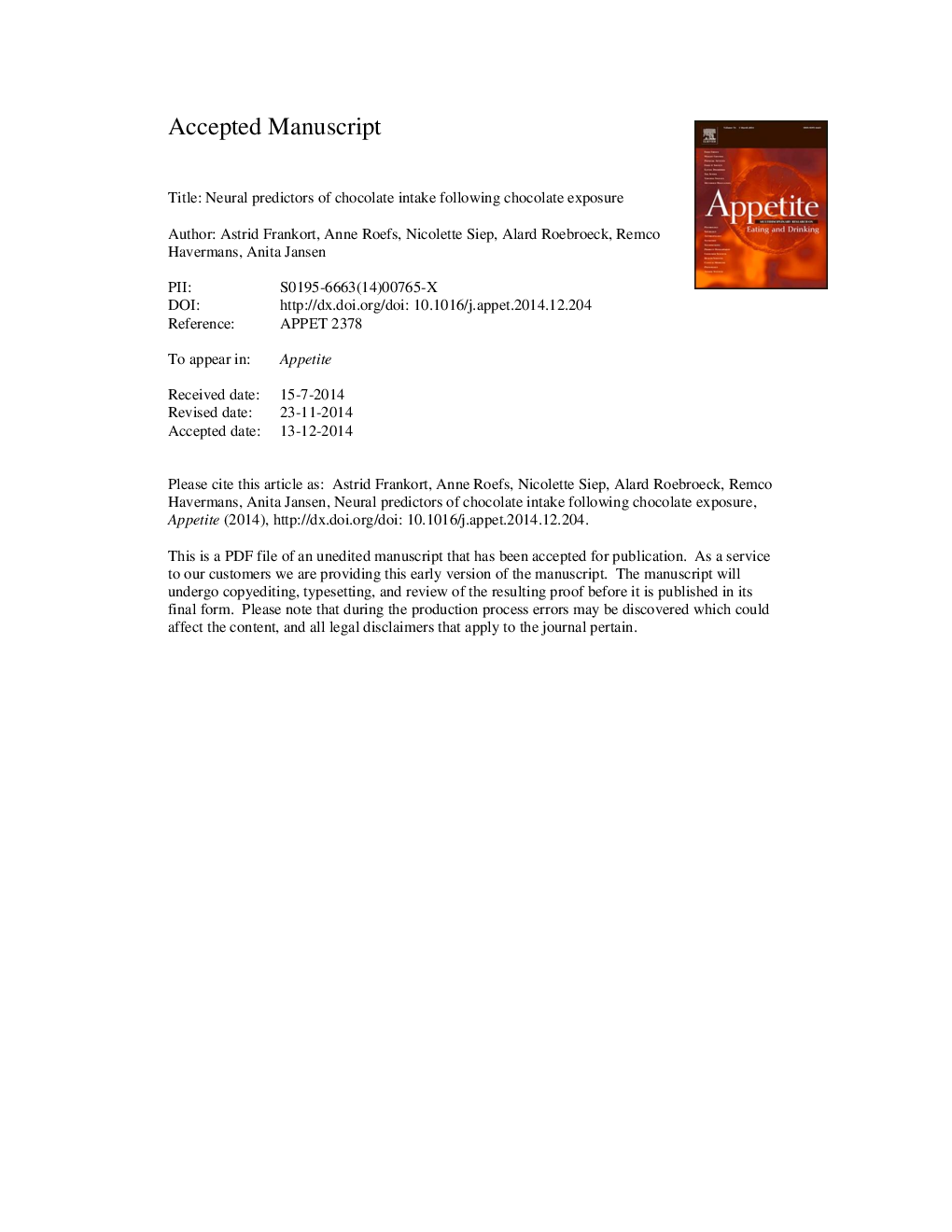| Article ID | Journal | Published Year | Pages | File Type |
|---|---|---|---|---|
| 7309194 | Appetite | 2015 | 38 Pages |
Abstract
Previous studies have shown that one's brain response to high-calorie food cues can predict long-term weight gain or weight loss. The neural correlates that predict food intake in the short term have, however, hardly been investigated. This study examined which brain regions' activation predicts chocolate intake after participants had been either exposed to real chocolate or to control stimuli during approximately one hour, with interruptions for fMRI measurements. Further we investigated whether the variance in chocolate intake could be better explained by activated brain regions than by self-reported craving. In total, five brain regions correlated with subsequent chocolate intake. The activation of two reward regions (the right caudate and the left frontopolar cortex) correlated positively with intake in the exposure group. The activation of two regions associated with cognitive control (the left dorsolateral and left mid-dorsolateral PFC) correlated negatively with intake in the control group. When the regression analysis was conducted with the exposure and the control group together, an additional region's activation (the right anterior PFC) correlated positively with chocolate intake. In all analyses, the intake variance explained by neural correlates was above and beyond the variance explained by self-reported craving. These results are in line with neuroimaging research showing that brain responses are a better predictor of subsequent intake than self-reported craving. Therefore, our findings might provide for a missing link by associating brain activation, previously shown to predict weight change, with short-term intake.
Keywords
Related Topics
Life Sciences
Agricultural and Biological Sciences
Food Science
Authors
Astrid Frankort, Anne Roefs, Nicolette Siep, Alard Roebroeck, Remco Havermans, Anita Jansen,
